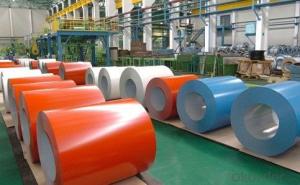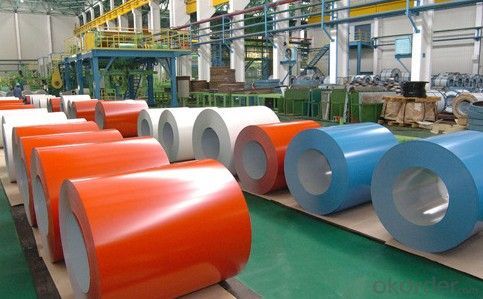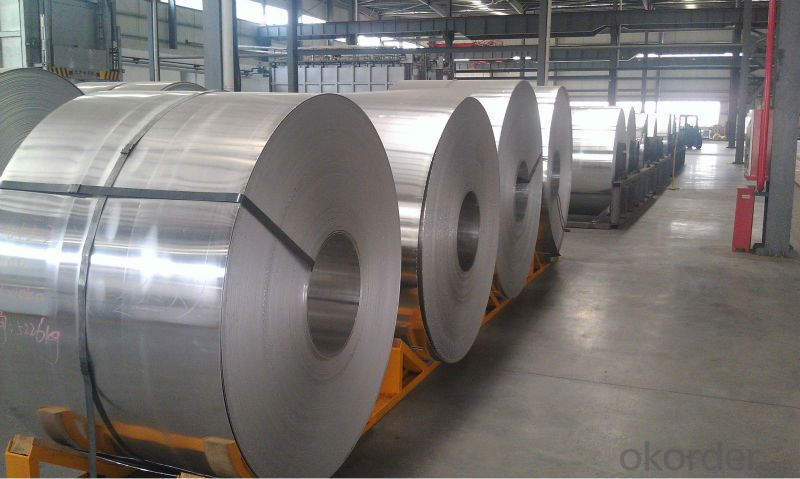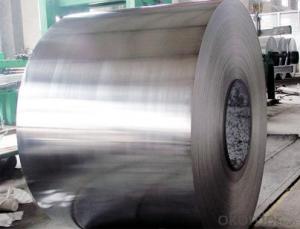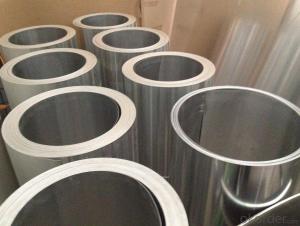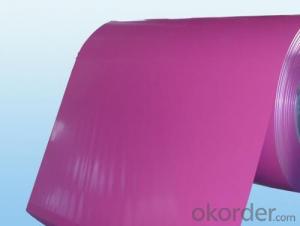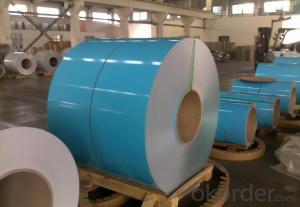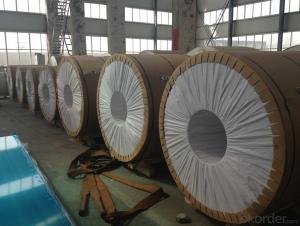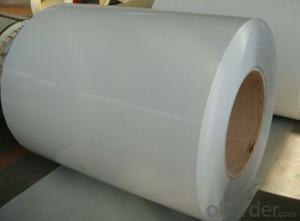Aluminum Coil Tube for Prepainted Aluminum Roll Curtain Wall Materials Production
- Loading Port:
- Shanghai
- Payment Terms:
- TT OR LC
- Min Order Qty:
- 2 m.t.
- Supply Capability:
- 60000 m.t./month
OKorder Service Pledge
OKorder Financial Service
You Might Also Like
Specification
Prepainted Aluminium Roll For Curtain Wall Materials Production
Alloy | 1050, 1060,1100, 3003 3004 3105 3A21 5005 5052 etc |
Temper | O/H12/H14/H1/H18/H32/H34/H36/H38//H111/H112/H116/H321/T6/T651/T3/T351 etc |
Thickness | 0.1mm to 6mm |
Width | 20mm to 3300mm |
Coil weight | 100kgs to 6 tons depends on actual requirement |
Core material | Aluminum or paper |
Coil inner diameter | 75mm, 150mm, 200mm, 300mm, 405mm, 505mm or as required |
Appplication | construction, roofing, decoration, lamping etc |
Package | eye to wall or eye to the wall for aluminum coil with wood pallet (wooded case also available) |
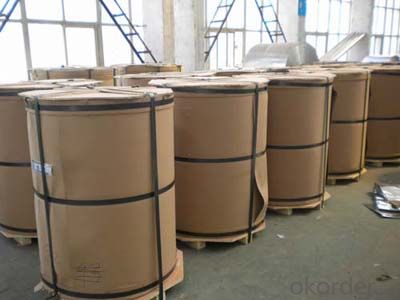
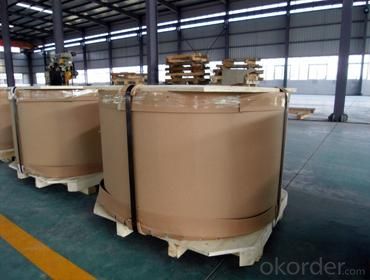
3) Glass curtain wall frame
4) Interior decoration
5) Elevator decoration
6) Signs, nameplate, bags making.
7) Automobile parts material
8) Office and Household appliances: HVAC equipments
9) The consumer electronics: mobile phones, digital cameras, MP3 .etc.
Coating varieties
Polyester Coatings (PE)
PE (polyester) coatings exhibit an excellent combination of hardness, flexibility, flow, appearance, and superior resistance to dirt retention in indoor and outdoor applications. These coatings are highly resistant to abrasion, metal marking, staining, and marring, and require minimal maintenance. Glazetech uses polyester paints which provide excellent colour and gloss retention properties.
Polyvinylidene Fluoride Coatings (PVDF)
PVDF (polyvinylidene fluoride) is a chemical resistant thick film barrier coating commonly used in architectural applications where both excellent appearance and substrate protection must be maintained over a long period of time. This coating is unaffected by most chemicals and solvents and has excellent wear and abrasion resistance. PVDF also has a high dielectric strength, excellent resistance to weathering and the ability to self extinguish.
FAQ
--Q: Do you provide free samples?
--A: Yes, free samples will be sent to you on freight at destination.
--Q: Can I get your latest products catalogue?
--A: Yes, it will be sent to you in no time.
--Q: What is the MOQ?
--A: 2 tons
--Q: What are your payment terms?
--A: We accept L/C, T/T.
--Q: What kinds of alloy can you supply?
--A: 1000 series: 1050, 1060, 1070, 1100, 1145, 1200
3000 series: 3003, 3004, 3105, 3104
5000 series: 5052, 5083, 5754, 5182
6000 series: 6061, 6063, 6062, 6063
8000 series: 8011, 8021
--Q: What’s the coating of top side?
--A: PVDF and PE coating
--Q: What kinds of temper can you supply?
--A: O-H112: O,H12,H14,H16,H18,H22,H24,H26,H,32,H34,H111,H112
T3, T4, T6
- Q: hello I'm building a TIG welder and have found the output from my stick welders to be not so good for aluminum(60 Hz on one). I've heard that high frequency AC is the way to do AL but am not sure what constitutes high. I do have a nice miller gas driven welder also that is maybe triple the frequency of my line driven one but still had issues with it. does anyone know of an actual # ? I may be able to build an inverting PWM supply eventually to do this but am not sure what I would need it to do. does anyone have any data that might help? any data/tips about aluminum would be appreciated, thanks in advance. FYI I do understand why AC works so much better on AL, what with the oxides that are always present.
- Best not to play around with jury-rigged equipment if you don't have to. The best option would be to simply buy a purpose-made Inverter power source for TIG. The high frequency is secondary to the main AC power, which is by default, 60 hz. In other words, the high frequency is simply added on top of the main AC current. A lot of inverter power supplies for TIG allow you to alter the MAIN power AC frequency to above or below 60 hz. This can be helpful as increasing the frequency produces a somewhat narrower arc. The high frequency is little more than highly amplified radio noise that is injected into the main power signal. It consists of a broad range of frequencies, usually in the range of kilohertz to megahertz. Beneficial features to look for in an inverter include high-frequency generator, square wave, AC wave balance, AC frequency adjustment, high frequency intensity adjustment, and a foot control. Pre-flow and post-flow controls can also be convenient if you expect to be doing mass production jobs. I consider other features, including pulsed TIG, to be mostly a waste of time and money. With respect to the previous poster, the high frequency DOES help with the cleaning action for welding aluminum.
- Q: What are the common alloys used in aluminum coil production?
- The common alloys used in aluminum coil production are 3003, 3105, 5052, and 6061.
- Q: How do aluminum coils contribute to energy-efficient lighting installations?
- Aluminum coils play a significant role in enhancing the energy efficiency of lighting installations. Firstly, aluminum is a highly conductive material that efficiently transfers heat away from the lighting system. This prevents the accumulation of heat, which can diminish the performance and lifespan of the lighting fixtures. By dissipating heat effectively, aluminum coils help maintain optimal operating temperatures, ensuring the lights operate at their highest efficiency. Furthermore, aluminum coils are lightweight, making them easier to handle and install. This reduces the overall weight of the lighting fixtures, making them more convenient to mount and manipulate during installation. The reduced weight also translates into lower energy consumption during transportation and installation, ultimately contributing to energy efficiency in the long run. In addition, aluminum coils are highly durable and resistant to corrosion, which is crucial for lighting installations exposed to various environmental conditions. This durability minimizes the need for frequent replacements or repairs, reducing energy consumption associated with maintenance. Moreover, aluminum is a recyclable material, meaning that the coils can be easily reused or repurposed at the end of their life cycle. Recycling aluminum requires significantly less energy compared to producing new aluminum, resulting in a reduced carbon footprint and lower energy consumption overall. Overall, aluminum coils offer numerous benefits in terms of energy efficiency for lighting installations. Their efficient heat dissipation, lightweight nature, durability, and recyclability contribute to optimized performance, reduced energy consumption, and a more sustainable lighting solution.
- Q: What are the different forming processes for aluminum coils?
- Some of the different forming processes for aluminum coils include rolling, coiling, slitting, and annealing.
- Q: What are the common transportation methods for aluminum coils?
- The common transportation methods for aluminum coils include trucking, rail, and shipping. Trucking is often used for short distances or when there is a need for prompt delivery. Aluminum coils are typically loaded onto flatbed trailers or specialized coil trailers equipped with cradles or coil racks to secure them in place during transit. This method offers flexibility and allows for easy access to various locations. Rail transportation is commonly used for long-distance shipments. Aluminum coils are loaded onto railcars, which are specifically designed to accommodate the weight and dimensions of the coils. Rail transportation is advantageous for its cost-effectiveness and ability to transport large quantities of coils in a single shipment. Shipping by sea is another common method for transporting aluminum coils, especially for international shipments. Coils are typically loaded onto cargo ships in specialized containers or directly onto the ship's deck. Shipping offers the advantage of carrying large volumes of coils over long distances, and it is often the preferred method for global distribution due to its efficiency and cost-effectiveness. Overall, the transportation methods for aluminum coils depend on factors such as distance, urgency, quantity, and destination. Companies must consider these factors to determine the most suitable transportation method for their specific needs.
- Q: How are aluminum coils used in the production of automotive heat shields?
- The production of automotive heat shields heavily relies on aluminum coils. These shields are vital in safeguarding different parts from excessive heat produced by the engine, exhaust system, or other heat sources. Typically, these shields are made from lightweight and heat-resistant materials, making aluminum coils a popular choice because of their exceptional thermal conductivity, durability, and corrosion resistance. To manufacture the heat shields, aluminum coils undergo a process of unwinding and cutting into sheets of the desired size. These sheets are then shaped using various techniques like stamping, bending, or deep drawing. Aluminum's malleability makes it perfect for creating heat shields with intricate geometries, ensuring a precise fit in the vehicle. Once the desired shape is achieved, the aluminum sheets are often treated with a surface coating to improve heat resistance and prevent corrosion. This coating can be in the form of a ceramic or metallic layer, serving as an additional barrier against extreme temperatures. Furthermore, the formed and coated aluminum sheets are usually combined with other insulating materials, such as ceramic fibers or laminated films, to further enhance the heat shield's performance. These additional layers aid in reducing heat transfer by reflecting or absorbing the heat energy, thus protecting surrounding components from potential damage or overheating. Finally, the assembled heat shields are affixed in specific locations within the vehicle, such as around the exhaust system or near the engine, using fasteners or adhesive techniques. The lightweight nature of aluminum coils ensures that the heat shields do not add unnecessary weight to the vehicle, which is crucial for maintaining fuel efficiency and overall performance. In conclusion, aluminum coils are extensively employed in the production of automotive heat shields due to their excellent thermal conductivity, durability, and corrosion resistance. Their ease of shaping and molding, coupled with surface coatings and additional insulating layers, guarantee effective heat insulation and protection for various vehicle components.
- Q: What are the common methods of joining aluminum coils together?
- Depending on the desired outcome and specific application, there are various ways to join aluminum coils together. One frequently employed technique is welding, which involves melting the edges of the aluminum coils together using heat. Gas tungsten arc welding (GTAW) or gas metal arc welding (GMAW) are some of the techniques used for this purpose. Welding creates a strong and durable joint, but it is time-consuming and requires skilled operators. Another approach is adhesive bonding, where a specially formulated adhesive is applied between the aluminum coils to create a bond. This method is often used for lightweight applications and provides a joint with excellent strength and flexibility. However, it may necessitate surface preparation and curing time for the adhesive to fully set. Mechanical fastening techniques like riveting or bolting can also be utilized to join aluminum coils. Riveting involves inserting a rivet through drilled holes in the coils and deforming it to secure the joint. Bolting, on the other hand, involves using screws or bolts to hold the coils together. Mechanical fastening methods offer a strong joint and are relatively quick to implement, but they may require additional hardware and can create stress concentration points. Another method involves using a crimping or roll forming technique. This technique employs specialized machinery to apply pressure to the aluminum coils, creating interlocking joints or folds. Crimping or roll forming is commonly used in roofing, siding, or gutter systems and provides good strength and weather resistance. However, it may necessitate specific equipment and expertise. To summarize, the common methods for joining aluminum coils include welding, adhesive bonding, mechanical fastening, and crimping/roll forming. Each method has its own advantages and considerations, so the choice should be based on the specific requirements of the application.
- Q: and alsoHow many grams of the decay product will have formed after 8 days go by?The decay product is the new isotope created as a result of the positron decay of aluminum-24.In class my teacher didn't explain this completely but there's a question on the homework that me and even my mom (another teacher) can't find the answer to.
- so it 6000/ (2*8*24*60*60) 0.00434027778 grams have you heard of the internet an unless your mom is a chem teacher it doesnt mean much
- Q: What are the common safety precautions when working with aluminum coils?
- Some common safety precautions when working with aluminum coils include wearing personal protective equipment such as gloves, safety glasses, and appropriate clothing to protect against cuts and burns. It is important to handle the coils with care to prevent injury, as they can be heavy and have sharp edges. Additionally, workers should be cautious when operating machinery or tools around the coils to avoid accidents. Proper ventilation should be ensured in the work area to prevent the buildup of fumes or dust. Lastly, workers should be trained on proper lifting techniques and be aware of the potential hazards associated with working with aluminum coils.
- Q: Are there any limitations or drawbacks of using aluminum coils?
- Yes, there are limitations and drawbacks to using aluminum coils. One limitation is that aluminum coils are more expensive than other coil materials like copper. Additionally, aluminum coils have a lower heat transfer rate compared to copper, which may affect the efficiency of cooling or heating systems. Furthermore, aluminum coils are prone to corrosion and can be more difficult to repair or replace compared to other coil materials.
Send your message to us
Aluminum Coil Tube for Prepainted Aluminum Roll Curtain Wall Materials Production
- Loading Port:
- Shanghai
- Payment Terms:
- TT OR LC
- Min Order Qty:
- 2 m.t.
- Supply Capability:
- 60000 m.t./month
OKorder Service Pledge
OKorder Financial Service
Similar products
Hot products
Hot Searches
Related keywords
